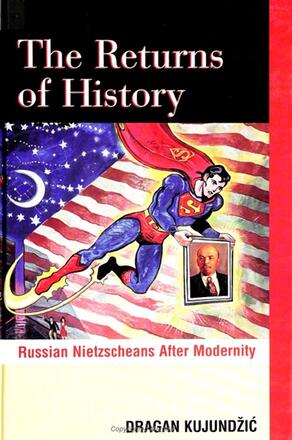
The Returns of History
Russian Nietzscheans After Modernity
Alternative formats available from:
Examines the influence of Nietzsche on Russian Formalists, Russian Modernism, and Mikhail Bakhtin, reinforcing the importance of the modernist theoreticians by reading them in the contemporary theoretical context.
Description
Throwing new light on the important thesis about the influence of Friedrich Nietzsche on Russian formalists and Russian modernism, this book presents this theme in the context of relevant research, and convincingly defines the extent of the claims advanced in the body of the text.
The author's close readings and competent incorporation of critical literature paradigmatically exemplify the truth of how precisely indeed literature 'reflects' the life of human societies; equally importantly, they also show that literature reveals its secrets only to the gaze of astute and alert readers. Together with a thorough knowledge and pertinent application of the scholarship in the field, and with frequent flashes of revealing insights and suggestive connections, close readings constitute the book's most consistently outstanding aspect, giving it increasingly more depth and dimension.
David Farrell Krell's first work of fiction, Nietzsche: A Novel, was published by SUNY Press. Krell is Professor of Philosophy at DePaul University in Chicago.
Reviews
"The book tackles a subject and a national literature that need and deserve wider recognition and a competent insertion into the mainstream of post-structuralist thought that Western literatures have enjoyed without comparable prejudice for over a quarter of a century." -- Piotr Parlej, Russell Sage College